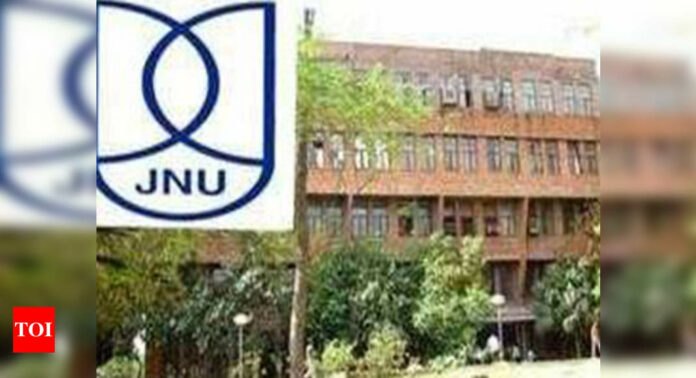NEW DELHI: Jawaharlal Nehru University‘s (JNU) Academic Council has approved a course on counter-terrorism and after the approval of the Executive Council, it will become part of the syllabus.
According to the university administration the new course, ‘Counter-Terrorism’, has been prepared for the students studying international relations and engineering.
Through the course, students will be made aware of the methods and technical aspects of dealing with terrorism.
However, some people, including several JNU teachers, have objected to the course.
CPI MP Binoy Viswam has lodged a protest over the new curriculum and has also written to Union Education Minister Dharmendra Pradhan about it.
Viswam, in his letter to the minister, has said that communal and global politics should not be made part of higher education.
He said that the information being provided in the syllabus, approved by JNU, is prejudiced.
However, JNU Vice-Chancellor M. Jagadesh Kumar issued a statement saying that the ‘Counter-Terrorism’ subject will be taught to the students of engineering and international relations.
The subject deals in how to tackle terrorism and what will be the role of science and technology in it. The course has been designed keeping in mind the terrorist activities around the world, so that India can handle such incidents, he stated.
In the course, the students will be taught about the radical and religious terrorism networks and the role of government agencies in combating terrorism.
The JNU administration said that no particular religion is being taught in the university.
The course is designed from the perspective of India as the country has long suffered from cross-border sponsored terrorism, asserted the university.
The Academic Council of JNU has approved a total of three new courses. The courses that have been approved include ‘Counter-Terrorism among Major Powers’, ‘Strategies for Asymmetric Conflicts and Cooperation’ and ‘Importance of Science and Technology in International Relations’.
According to the university administration the new course, ‘Counter-Terrorism’, has been prepared for the students studying international relations and engineering.
Through the course, students will be made aware of the methods and technical aspects of dealing with terrorism.
However, some people, including several JNU teachers, have objected to the course.
CPI MP Binoy Viswam has lodged a protest over the new curriculum and has also written to Union Education Minister Dharmendra Pradhan about it.
Viswam, in his letter to the minister, has said that communal and global politics should not be made part of higher education.
He said that the information being provided in the syllabus, approved by JNU, is prejudiced.
However, JNU Vice-Chancellor M. Jagadesh Kumar issued a statement saying that the ‘Counter-Terrorism’ subject will be taught to the students of engineering and international relations.
The subject deals in how to tackle terrorism and what will be the role of science and technology in it. The course has been designed keeping in mind the terrorist activities around the world, so that India can handle such incidents, he stated.
In the course, the students will be taught about the radical and religious terrorism networks and the role of government agencies in combating terrorism.
The JNU administration said that no particular religion is being taught in the university.
The course is designed from the perspective of India as the country has long suffered from cross-border sponsored terrorism, asserted the university.
The Academic Council of JNU has approved a total of three new courses. The courses that have been approved include ‘Counter-Terrorism among Major Powers’, ‘Strategies for Asymmetric Conflicts and Cooperation’ and ‘Importance of Science and Technology in International Relations’.


















